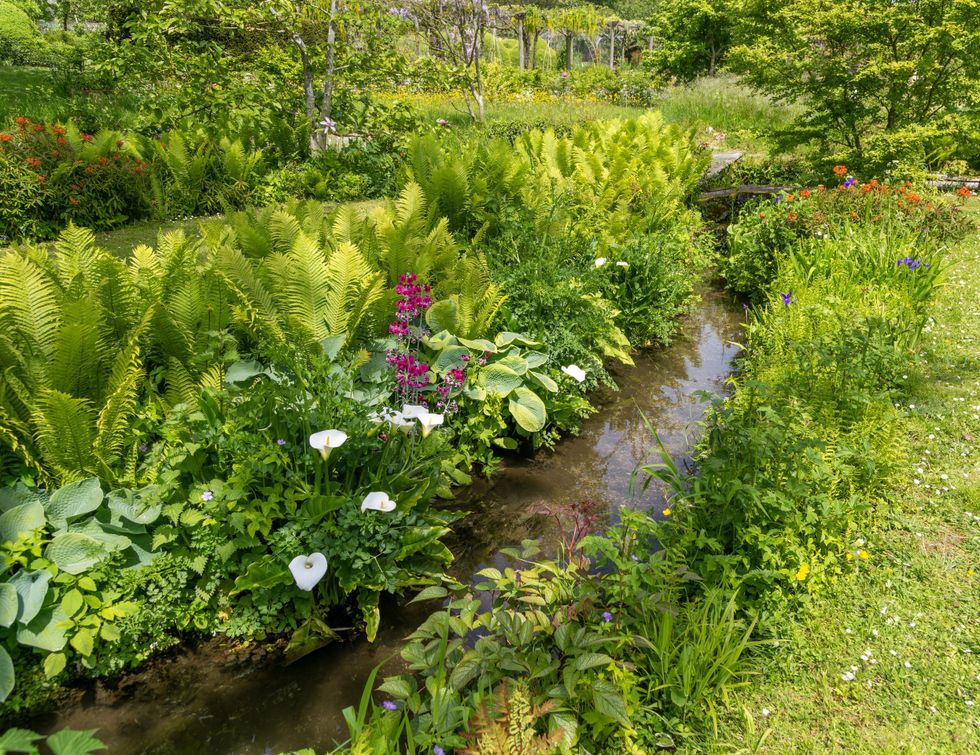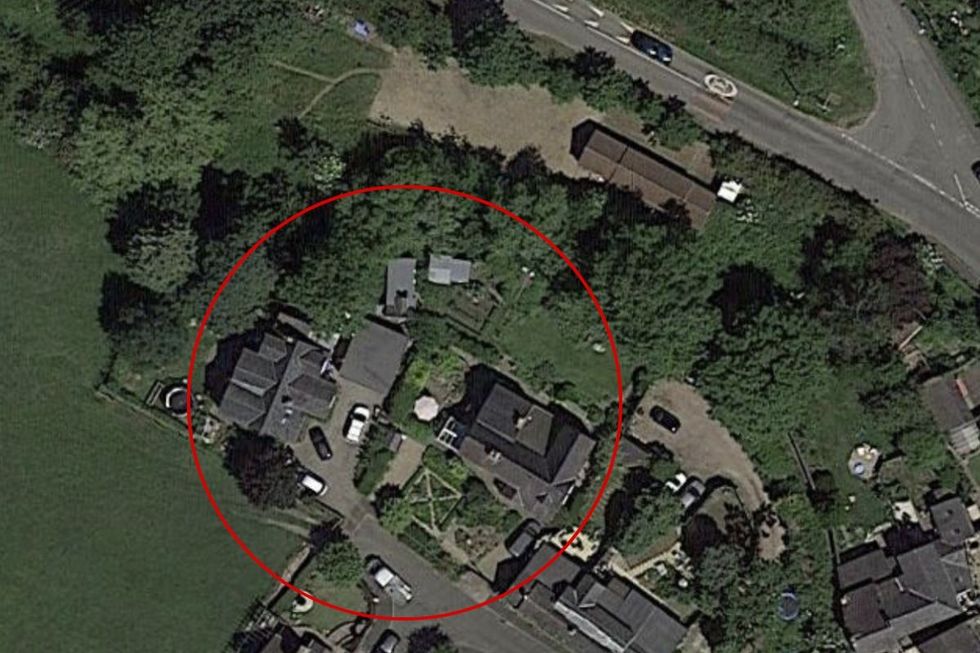A long-running boundary dispute in the quaint village of Thrussington, Leicestershire, has pitted potter David Wright against painter Dee Narga in a bitter legal battle over a narrow stream.
The conflict, which has lasted four years, centres on a 4ft-wide brook dividing their gardens.
Wright has long believed the stream to be part of his property, where his children once played.
However, when Narga moved in behind him in 2020, she claimed ownership of the babbling brook.

A stock image of a stream
GETTY
The dispute escalated when Narga tore down an existing fence and erected a new boundary along the opposite bank.
This action sparked “heated discussions” and led to a court case involving Wright, his wife, and their neighbours against Narga.
Brook Barn, purchased by Narga for £265,000 in 2020, was formerly a pig farm with planning permission for conversion into a large house.
Wright and his wife Laura, along with their neighbours Amanda and Tony Clapham, claim the disputed land forms part of their gardens.
LATEST DEVELOPMENTS:
The Wrights have lived in their property since 1984, while the Claphams moved in in 1996.
Both couples had treated the brook and its banks as part of their gardens “for decades” before Narga’s arrival.
Wright, who creates Japanese-style ceramics in his garden studio, testified that his children regularly played in the brook.
The Claphams maintained a wildlife garden north of the stream, providing habitats for local fauna.
Narga, an NHS administrator and painter, shares her property with two ducks named Larry and Wanda.
The legal battle has seen two court clashes so far, with Narga initially ruled the owner of the stream.
However, a judge found that the Wrights and Claphams had established “squatters’ rights” over the brook and adjacent land years before Narga’s arrival.
Despite this, their claims were superseded by Narga’s once her property was registered.The judge ruled that because the couples had not registered their adverse possession and their use was not “obvious”, Narga’s claim took precedence.
This decision hinged on the Land Registration Act 2002, which allows for a “reset” of boundaries upon new registration.
The Wrights and Claphams are now appealing to the Court of Appeal to overturn these orders and reclaim their garden land.
Lawyers describe this case as having “great significance” legally.
The key arguments in this case revolve around the interpretation of “obvious” occupation and the rights of registered owners versus long-term occupants.
Narga’s barrister, Jonathan Gale, argued that she made a “reasonably careful inspection” before purchase and saw no obvious signs of third-party occupation.
Judge Hedley ruled that the land’s occupation was not “obvious” at the time of Narga’s purchase, citing a deteriorated fence and overgrown vegetation.
Morris, representing the Wrights and Claphams, contended that the judge misapplied the law, as his clients had used the land as part of their gardens for decades.
Gale countered that “purchasers of land need only consider interests which are apparent from the register or from reasonable careful inspection”.
He added: “Registered owners ought to be left in peace.”

An aerial shot of the neighbour row’s location
GOOGLE STREET VIEW
Judge Hedley ruled that the land’s occupation was not “obvious” at the time of Narga’s purchase, citing a deteriorated fence and overgrown vegetation.
Morris, representing the Wrights and Claphams, contended that the judge misapplied the law, as his clients had used the land as part of their gardens for decades.
Gale countered that “purchasers of land need only consider interests which are apparent from the register or from reasonable careful inspection”.
He added: “Registered owners ought to be left in peace.”
The case hinges on whether long-term use or recent registration takes precedence in property disputes.
The Court of Appeal’s decision could set a precedent for how long-term occupation is weighed against recent land registration.